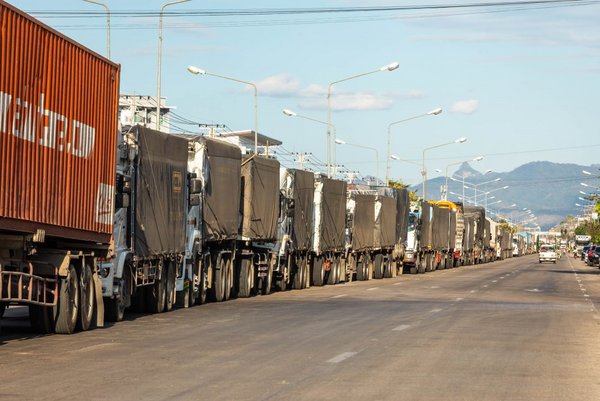- Share this article
- Subscribe to our newsletter
The impact of COVID-19 on agricultural trade and food security
COVID-19 presents our highly connected world with unprecedented challenges. One of the most effective means of addressing this crisis is through timely and accurate information. Papers on the impact are published nearly every day. Trade restrictions are being imposed by some countries. Food and nutrition security situations are closely monitored. So it has proven a challenge to keep up with the latest information.
The sector projects “Agricultural Trade, Agribusiness, Agricultural Finance” and “Agricultural Policy and Food Security” of Deutsche Gesellschaft für internationale Zusammenarbeit GmbH (giz) organised an initial internal webinar on April 3rd 2020 to discuss the implications of COVID-19 for agricultural trade and food and nutrition security. The webinar was based on the available literature and information.
Currently, we are still at the stage of understanding what COVID-19 might mean for agricultural trade and food and nutrition security. This is a crucial point since, in the coming months, we will be setting the scene not only for our economies but for the future of our societies. Going back to the drawing board in a few months’ time is not an option. Policy-makers, the private sector and international organisations are all driving by sight given the nature of the pandemic.
Several trade measures have been put in place. While we are quick in focusing on negative measures such as export restrictions on agri-food supply chains that are still dominating, several positive steps have been taken as well with measures intended to actively facilitate trade (e.g. simplifying custom clearance).
COVID-19 is globally affecting all parts of the agri-food chains
So far, the situation now does not compare to the food price crisis in 2008, when 35 countries (often important trading countries) had restricted exports of staple foods. Still, developments have been closely monitored, since COVID-19 is affecting all parts of agri-food chains (availability, prices, marketing and regulations, accessibility, affordability, convenience, desirability).
When we look at the situation in our partner countries, it is important to consider that the virus is arriving in countries already affected by humanitarian crises caused by conflicts, natural disasters (e.g. plagues of locusts) and climate change. From a food and nutrition security perspective, quarantine measures such as mobility restrictions, along with the loss of income due to shutdowns, curfews and a general economic downturn might even a more immediate negative effect than current trade restrictions.
Harvest and supply chain disruption and movement restrictions can lead to shortages, especially in highly nutritious food like fruits and vegetables – with negative effects for producers, consumers, vendors and retailers. However, many countries in Africa rely heavily on food imports. They are particularly vulnerable to price changes. In more than 194 countries world-wide, schools have been closed meaning that over 370 million children have no access to regular school meals, putting them at risk in terms of food security.
The webinar showed us that despite facing an unprecedented situation, we already have reliable policy instruments that we need to make use of. While we are still at stage one, we already need to approach stage two. How can we ensure that we reach as many food insecure people as possible? How can economies be supported, keeping in mind that we don’t want to give up our objective of having more sustainable, climate-friendly economic systems? Presenters concluded that a free, fair and rule-based world trade was essential. The World Trade Organization, the World Health Organization and the Food and Agriculture Organization have stressed that trade is key to ensuring access to affordable and healthy food. Therefore, trade measures have to be closely monitored to prevent a health crisis from result in a food crisis because of trade issues. We need to address immediate needs, strengthen good nutrition and promote adequate hygiene practices. COVID-19 is a clear reminder that societies need inclusive social protection programmes.
Currently, we are at the point of knowing that we don’t know a lot, but we can anticipate, and we must learn from the past and make use of the available instruments. Moving forward, the coming weeks and months should clearly follow the mantra watch, react, adapt and cooperate to shape the “new normal” with a view to development!
Kristina Mensah, Deutsche Gesellschaft für internationale Zusammenarbeit GmbH,
sector project “Agrarhandel, Agrarwirtschaftsförderung, Agrarfinanzierung” and sector project “„Agrarpolitik und Ernährungssicherung”
Bonn, Germany
Kristina.mensah@giz.de





Add a comment
Be the First to Comment